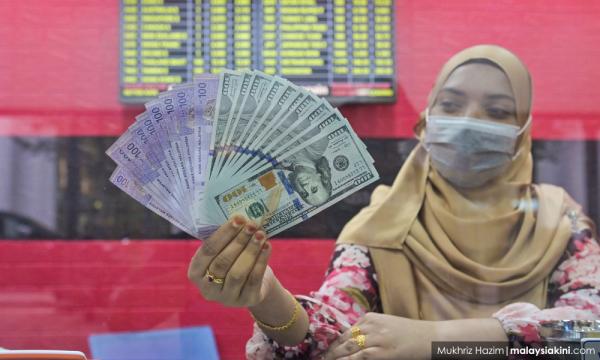COMMENT | The ringgit has fallen to its lowest value since the Asian financial crisis. The reaction from the opposition has been one of frustration and panic, raging against the finance minister. The reciprocation from the finance minister has been alleviation of fear, stating that the external influences of Malaysia’s main export partners have contributed to its slide.
To his credit, there is some proof of this, with many currencies globally depreciating against the US dollar. However, the ringgit has also slipped against the Singaporean dollar, Japanese yen and euro. What does this mean?
The relative value of one currency against another impacts the imports of said currency’s country. More ringgit is needed to match the value of imported goods, which are then sold at generally higher prices to make up for the difference.
This is what we call inflation. What is particularly dangerous is if inflation causes people to save more and spend less, internal money circulation will be affected, causing even lesser money to be in the hands of the people, especially petty traders, daily-wage earners and the like. Over time, the economy may irreversibly shrink.
However, it is not all bad. A lower currency value increases the competitive advantage of exports as they become relatively cheaper. This may increase Malaysia’s exports, thus bringing in more money.
Of course...


